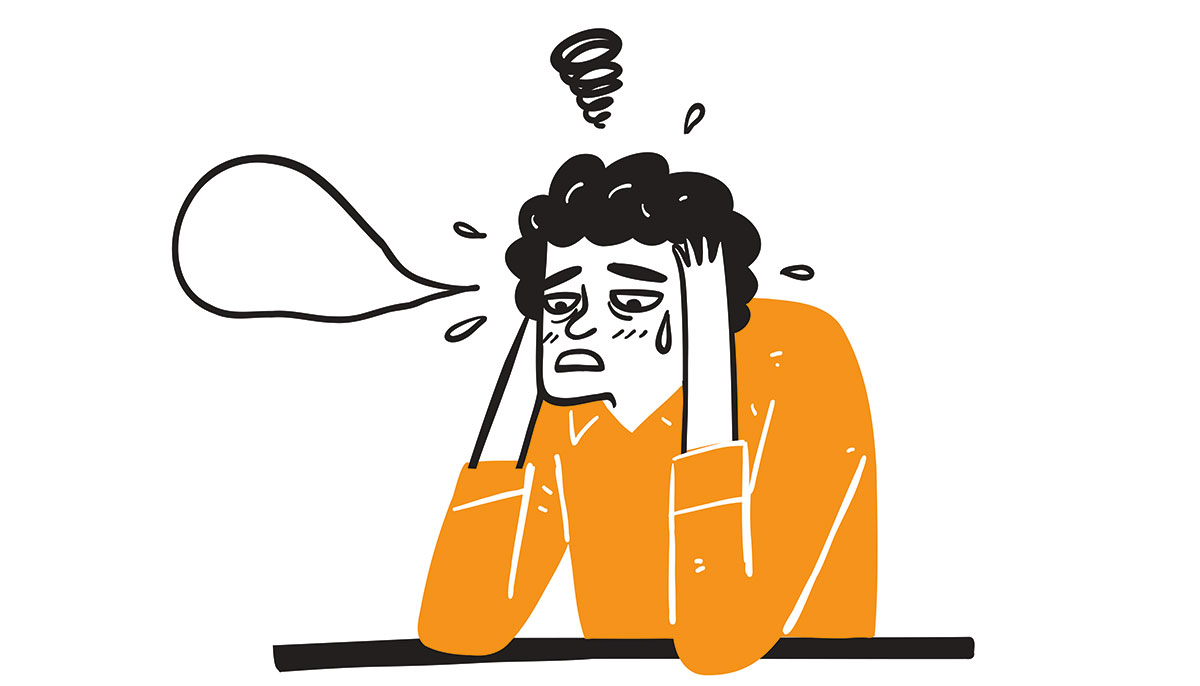I’m certain I’m not alone in having made errors that I bear in mind lengthy afterward. At any time when I say the flawed factor, there’s such a horrible sinking feeling as I understand the affect of my phrases.
One such second I bear in mind got here in my first 12 months or two of instructing meditation after I was nonetheless nervous about taking the trainer’s seat. I used to be providing a daylong retreat for individuals who determine as trans, nonbinary, and genderqueer, co-teaching with an expensive good friend. We’d identified one another a very long time. However as I introduced our lunch break, I completed with “and once we come again, she’s going to lead a brief meditation.”
It’s human to make errors; irrespective of how a lot we strive, there’s no solution to cease. And that’s okay.
I’d been referring to my good friend with they/them pronouns for a few years, and I knew the fitting factor to say. The flawed pronoun simply slipped out—in entrance of a complete room of parents who determine as trans, nonbinary, or gender-expansive. I froze, and it felt like the subsequent ten seconds took perpetually to move. Then I took a deep breath, turned to my good friend, and stumbled by way of. “I imply they,” I mentioned. “I’m so sorry.” My good friend and co-teacher met my mistake with grace, and I felt a flood of aid.
Since that second, I’ve made many extra errors within the trainer’s seat. As somebody who usually teaches in trans and different affinity areas, I’ve discovered that pondering I can’t make a mistake is just unrealistic. Our identities are shifting and new pronouns, genders, orientations, and identities are being created on a regular basis. Whilst somebody who’s trans, genderqueer, and queer, I can’t sustain. There are sometimes extra gender identities than there are numbers of individuals within the room. As a substitute of making an attempt to get it proper each time, I’ve made oops and ouch moments part of my follow.
Right here are some things I’ve realized alongside the way in which about assembly errors with presence.
First, I attend to my very own expertise, pause, and really feel. This can be the toughest step. Errors convey up disgrace, which is among the most difficult emotions to be current for. However as practitioners we present up for a lot of totally different sorts of discomfort: bodily ache, robust feelings, and intense sensation. In assembly disgrace as a part of my follow, I discover intimately the way it feels. I discover my breath changing into shallow, my legs activating as if to run, and a shrinking in my backbone. Typically I discover myself leaning away from the individual I’m speaking to, avoiding eye contact. As uncomfortable as these sensations are, with my full consideration, they do move. I can invite one other breath after which one other.
Second, I discover my curiosity within the different individual’s expertise. In my religious neighborhood, the East Bay Meditation Heart, that is one in all our agreements for multicultural interplay. This settlement is known as “perceive the distinction between intent and affect.” There’s a pure tendency, once we make a mistake, to think about our personal good intentions. I discover that I instantly wish to clarify what I meant to say, to inform this one who could also be hurting why I didn’t imply to harm them. There could also be a spot for some clarification, nevertheless it’s not a useful first step, and it might probably come off as defensive. As a substitute, if we flip to the opposite individual and ask them about their expertise, we will present that we actually care about our affect on them. This demonstrates our care and empathy, our willingness to listen to their expertise and put it first—earlier than our personal—on this second when they might be hurting.
Lastly, I do my finest to make a honest apology. Just like the second step of curiosity and empathy, that is one other turning towards the connection. apology will embrace expressing my understanding of the affect of my motion or phrases, immediately saying I’m sorry for that affect, figuring out one thing I’ve realized from this error, and making a dedication to totally different or new motion sooner or later.
Returning to the story of utilizing the flawed pronoun for my fellow trainer, we will see these parts have been current. I first took a second to breathe and see my expertise. I turned to my good friend’s expertise with empathy for a way they might be impacted, and I made an apology, nevertheless clumsy. So, I used to be heading in the right direction.
Now, although, with the advantage of having had extra follow with my errors, I’d deal with the scenario slightly in a different way. I’d pause and breathe, restate my phrases with the proper pronouns, acknowledge my mistake to my good friend, and make a easy apology. Then I’d ask them how they’re doing and in the event that they want something from me past an apology. As well as—as a result of my phrases had simply doubtlessly impacted a room full of individuals—I’d flip to the room and observe the identical steps. I’d verify in and see if anybody had something they wished to share in regards to the affect they skilled, and I’d express regret to them. Lastly, I’d flip again to our agenda.
We regularly miss alternatives for restore by not apologizing, however we will additionally over-apologize, which is one other solution to make the second all about ourselves. A part of the artwork of the apology is making it the fitting dimension for the second. This comes with follow.
It’s human to make errors; irrespective of how a lot we strive, there’s no solution to cease. And that’s okay. Errors are a key a part of how we study. Can we settle for that missteps are a part of the human expertise and let go of our expectations that we’ll get all the pieces proper each time? As soon as we’ve let go of this unrealistic expectation, we will give attention to the half we even have management over: how we reply once we’ve made a mistake.
On the coronary heart of my very own meditation follow is the bodhisattva vow to cut back struggling, my very own and the struggling of all beings. This follow of assembly the second of a mistake, with compassion and empathy for myself and the individual I’ve impacted, is one concrete approach I stay this vow in my on a regular basis life.
This text is from the March 2024 concern of Lion’s Roar journal.



